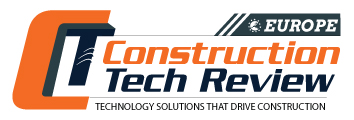THANK YOU FOR SUBSCRIBING

Bridging the Gap: How Artificial Intelligence (A.I.) Can Revolutionize Procurement in Construction
Ramon Parchment, Project Manager, AECOM Tishman [NYSE: ACM]

 Ramon Parchment, Project Manager, AECOM Tishman [NYSE: ACM]
Ramon Parchment, Project Manager, AECOM Tishman [NYSE: ACM]Discussions about Artificial Intelligence (AI) in construction often focus on design workflows like generative design or managing active construction sites. However, a frequently overlooked yet critical area is the procurement process, particularly, the buyout phase. This step is pivotal to a project’s success, as errors in procurement can have long-term consequences on timelines and budgets. Successful general contracting (GC) companies ensure that seasoned professionals handle project buyouts, emphasizing the mantra: “You can’t fix a bad buy. We have to buy the job right.”
When scope gaps occur, the repercussions are immediate and disruptive
Buying the job right means capturing every detail in the drawings and ensuring all scope items are accounted for. Procurement managers face the challenge of reviewing these details under tight deadlines typically 4-5 weeks or even less for smaller projects. Meeting these deadlines is essential, whether for public government contracts or private projects under a Master Service Agreement (MSA). Overlooking details can lead to costly gaps where trade contractors either miss critical tasks or assume responsibilities that weren’t clearly defined. For example, a superintendent might call a Project Manager (PM) to clarify who owns a task, halting progress because a trade contractor claims the work wasn’t in their scope. After reviewing the drawings with the procurement manager, the PM may discover the scope was overlooked, leading to delays and added costs. These scenarios strain client relationships, often forcing difficult conversations about contingency funds or unexpected expenses. Scope gaps frequently arise in areas where drawings contain incomplete or unclear details and notes. These issues often necessitate Requests for Information (RFIs), stalling progress while waiting for design team clarifications. Such delays can cascade through a project, disrupt contractors on-site and potentially impact project reserves.
Artificial Intelligence: A Game-Changing Opportunity
AI offers a transformative solution to these challenges. Just as tools like AutoCAD and Revit reinvented workflows in the 1990s, AI can reshape procurement processes. Imagine an AI-powered tool that scans drawings and specifications to flag scope gaps or inconsistencies before they escalate. These tools can act as a second set of eyes for procurement managers, ensuring no detail is missed while streamlining the buyout process.
“AI offers not just a solution but a transformation— reshaping procurement in construction and building a future where projects are executed with confidence and efficiency”
The potential benefits include faster and more accurate procurement workflows, fewer costly mistakes and stronger alignment between design and construction teams. AI, projects can start on solid footing, minimizing risks from the outset.
Leveraging Artificial Intelligence Tools Like Scoreboard AI to Bridge the Gaps
AI tools like Scoreboard AI are emerging to tackle these challenges. By automating the review of drawings and specifications, they:
● Accelerate bid preparation by reducing manual effort.
● Enhance accuracy by flagging inconsistencies and risks early.
● Foster collaboration through better communication between stakeholders.
Scoreboard AI aids pre-bid workflows by identifying risks and scope gaps early, helping teams address critical details upfront to avoid rework and delays.
Early Adoption: A Strategic Advantage
Organizations that integrate AI tools like ScoreboardAI into their procurement processes gain:
● Timely project delivery, boosting client satisfaction.
● A reputation for precision and reliability in the industry
● A competitive edge in an evolving industry.
● Consistent application of best practices across different projects and teams. Conversely, companies that resist adapting risk falling behind, burdened by outdated practices and recurring inefficiencies
Breaking the Cycle
Missed scope items don’t just impact individual projects they affect long-term client relationships and organizational growth. By leveraging AI tools like Scoreboard AI, procurement managers can proactively address scope gaps, ensuring smoother project execution and sustained success. Innovation is key to turning persistent challenges into pathways for excellence.
Now is the time to embrace AI powered solutions and elevate procurement workflows. These tools streamline processes, enhance accuracy and prevent costly errors, paving the way for success in an industry defined by precision and speed. AI offers not just a solution but a transformationreshaping procurement in construction and building a future where projects are executed with confidence and efficiency.
Read Also
Where Safety Really Lives: Between the Plan and the Jobsite
Accelerating the Shift Toward Data-Led Construction Excellence
Building Projects Through People, Planning and Culture
Innovating the Future of Construction: Insights From Power Design's Leadership
Advancing Construction with Technology and Care
Technology as a Strategic Advantage in Preconstruction

 Copyright © 2026 All Rights Reserved | by:
Copyright © 2026 All Rights Reserved | by: Construction Tech Review
| Subscribe | About us | Sitemap| Editorial Policy| Feedback Policy














